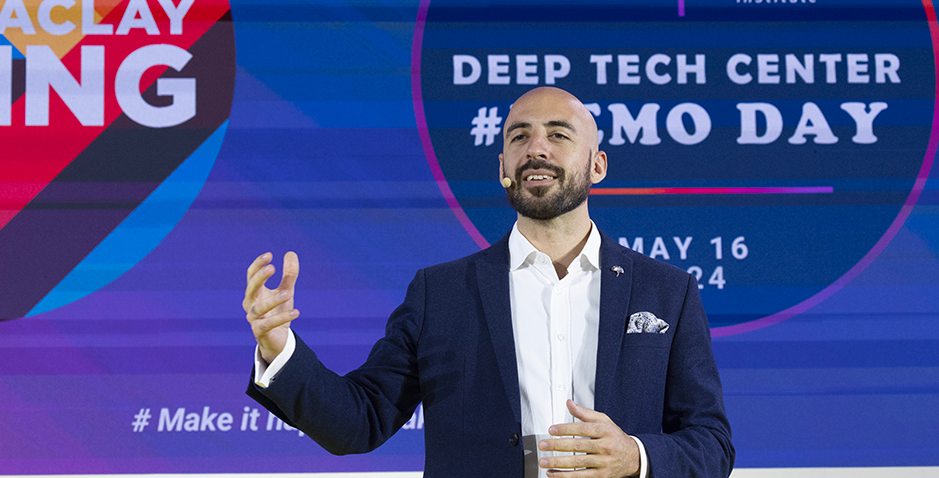Deep tech entrepreneurship at HEC is booming: "it's almost science fiction"
"Deep tech entrepreneurship is booming, to the extent that HEC has created a dedicated center within the Innovation & Entrepreneurship Institute. On the occasion of the inauguration of the center's ION Management Science Lab, Aymeric Penven, executive director of the Deep Tech Center, recalls its mission: to align business and scientific expertise...sometimes almost within the realm of science fiction!

To begin, how do you define deep tech entrepreneurship?
The difference with traditional entrepreneurship is that deep tech start-ups are founded on technological innovation, on a very strong differentiation compared to what already exists; they are therefore closely linked to scientific and academic research. The goal is then to try to apply the technology to an industry, or several industries. For example, a new material could have market applications in construction, aviation, aerospace... HEC's job is to connect the potential and the concrete application on a market, to build a bridge between science and business.
Why did HEC create a dedicated center for deep tech?
The center grew organically from the traditional entrepreneurship support that HEC has been doing for half a century. Over the years, we noticed a growing number of startups with a strong technological profile, in particular in the Challenge+ program, which attracted many start-ups based on scientific research. So, in a very natural way we designed programs with a strong technological focus, like the Creative Destruction Lab, and everything was consolidated into a Deep Tech Center just over one year ago.
Our target is entrepreneurs with a strong technological DNA, who need the School's expertise. We offer them our business, strategic skills. But that is only half of the equation! The other half is about contributing to enriching HEC's curriculum as we build the ecosystem. For instance, MBA students can follow classes about space or climate technology and be “matched” with start-ups. In a nutshell, the idea is to put more business in the hands of entrepreneurs and more tech in the hands of business students. But it's a natural evolution, as the deep tech phenomenon is growing fast.
Why is deep tech booming?
It's a global phenomenon, due to very concrete needs. For example, for climate-related reasons, we need to electrify transport, or we need computing power for AI or other sovereignty issues; all this requires technological innovation.
At HEC, students’ interest in tech matters is growing partly because of the boom in AI, partly because of the transformations required by climate change, like lowering the carbon intensity of supply chains. These transformations are also technical in nature, so you need people who are business-trained and who understand the technical aspect. In other terms, you need an interface between business and science.

How do you address the ethical and environmental issues posed by deep tech?
That is a fundamental point. When we select projects, our filter is its positive impact. Examples that come to mind are companies in the aerospace industry that are working on less polluting propulsion systems, or on observation from space, which is important to see how agricultural land evolves; also companies that store data on DNA which can fit on systems the size of a credit card, which lowers the physical footprint and energy consumption of data centers.
Can you give a few examples of successful start-ups that were incubated at HEC?
We have stories so amazing that they almost belong to the realm of science fiction! At the Foundation's campaign closing celebration, we presented a start-up that has created a brain-machine interface, that uses brain waves to pilot robots; disabled persons were thus able to carry the Olympic flame by piloting an articulated arm. Another company we had at the Creative Destruction Lab uses genetically modified plants to absorb metals from the soil. It has become an actor in the supply chain of batteries, by planting seeds in nickel-rich soils; the rare metal is then extracted from the plants in a way less harmful for the environment than when it is conventionally mined.
A word of advice for students interested in deep tech?
Associate complementary types of expertise. In successful start-ups, technological expertise and business skills are truly aligned.